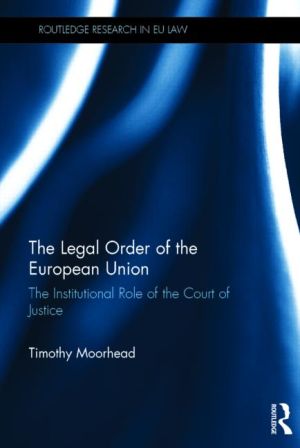
Positivist and non-positivist theoretical accounts of the concept or practice of law have debated the role played by values as possible features of legal ordering or possible conditions of legality. These debates concern whether law is properly understood as a descriptively accessible social fact, or is linked to a discursively accessible realm of 'abstract' normativity. Such debates arguably fail to fully account for the sense in which values operate within the legal order of the European Union, an order which is based upon the realisation of a complex objective, that of European integration. This legal order illustrates that, providing the moral concerns associated with 'rule of law' legal orders are maintained, additional values relating to the achievement of a co-operative political, social or economic enterprise can operate as fundamental or higher legal standards.
The book considers the values underlying legal ordering by reference to the law of the European Union and as expressed through the practices of the European Court of Justice. The book examines the relationship between Union and Member State legal orders and the institutional practices of the Court of Justice in giving effect to the values associated with the Union legal order. The conditioning of Union legal demands to take in institutional context is contrasted with the potential legal authority arising under the Treaties as a matter of international law. The book combines diverse theoretical insights regarding law along with analysis of case judgments of the Court of Justice in order to show how the EU legal order is indicative of a broader understanding of the role of values within legal orders than that portrayed in current theoretical accounts.